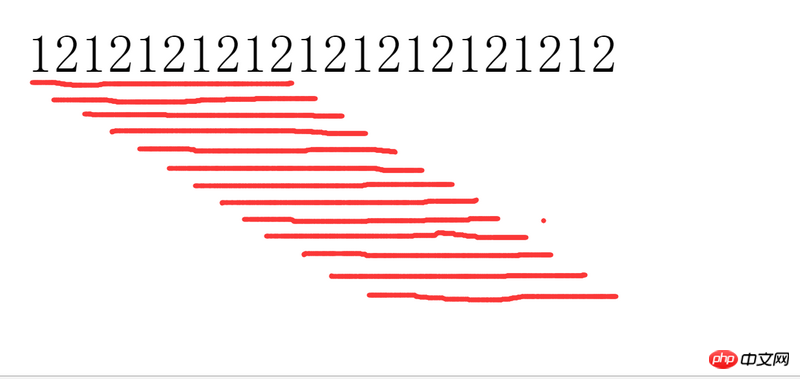For example string 1212121212121212121212
It needs to match 5 consecutive 12s or 5 consecutive 21s to be considered qualified
The number of matches should be 13, as shown in the figure below, the red lines represent matches.

曾经蜡笔没有小新2017-07-05 10:00:15
Consider extraction without occupancy and use look-around to extract subgroups: (?=.*?((12|21)2{4}))
Demo link: http://regex.zjmainstay.cn/r/...
大家讲道理2017-07-05 10:00:15
>>> import re
>>> ss='1212121212121212121212'
>>> re.findall(r'(?=((12|21){4}))',ss)
[('1212121212', '12'), ('2121212121', '21'), ('1212121212', '12'), ('2121212121', '21'), ('1212121212', '12'), ('2121212121', '21'), ('1212121212', '12'), ('2121212121', '21'), ('1212121212', '12'), ('2121212121', '21'), ('1212121212', '12'), ('2121212121', '21'), ('1212121212', '12')]js's Re engine is a bit rough and needs to loop back to submatches.
var str="1212121212121212121212";
var pattern=/(?=((12|21){4}))/g;
while(m = pattern.exec(str)){
console.log(m[1])
pattern.lastIndex++ //由于没有消耗字符,js的Re引擎不会递增索引。
}
女神的闺蜜爱上我2017-07-05 10:00:15
var pattern=/(?:(1)(?=(?:21){4}2))|(?:(2)(?=(?:12){4}1))/g;
var str="1212121212121212121212";
console.log(str.match(pattern));